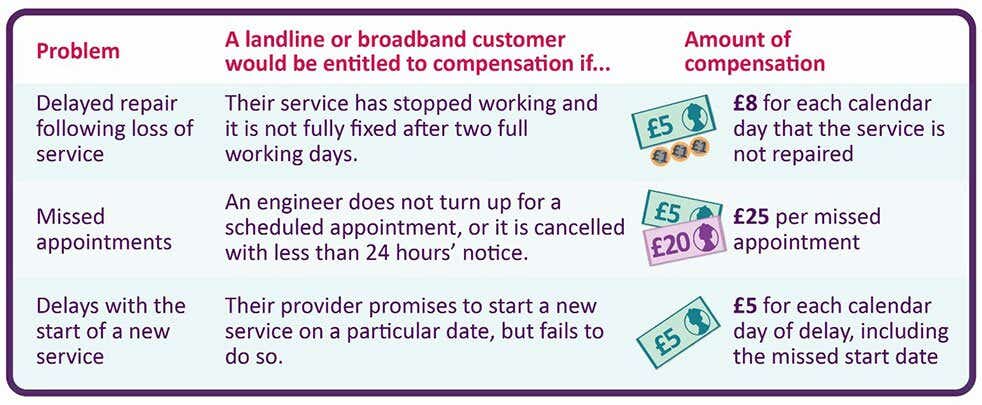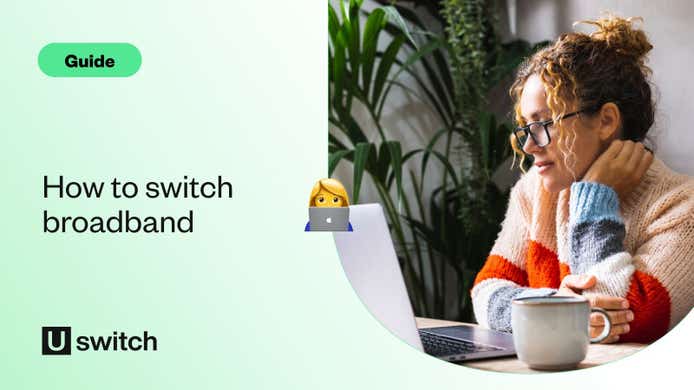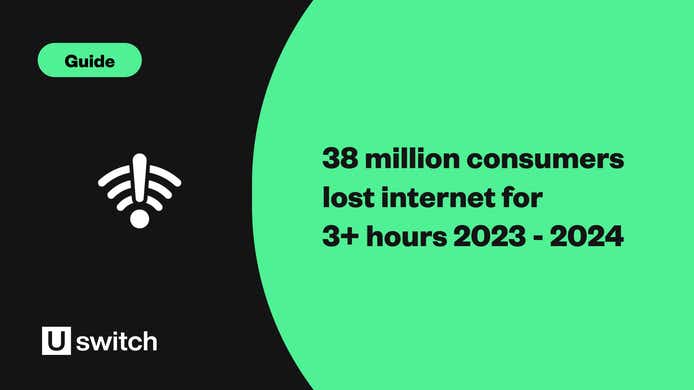There are few things in life as frustrating as losing your broadband connection, and with remote working still being popular, that loss of connection can hit hard. But what are your rights as a consumer if your broadband is slow or cuts out?
Ofcom Automatic Compensation Scheme
At the start of April 2021, Ofcom introduced its Automatic Compensation Scheme, which meant that broadband and landline customers would automatically get money back from their providers on lost services, should their circumstances meet its requirements.
A number of major providers opted to join this scheme, showing their commitment to providing a reliable service to their customers.
BT (joined 1 April 2019)
EE (joined 4 May 2021)
Hyperoptic (joined 28 October 2019)
NOW Broadband (joined 1 April 2019)
Plusnet (joined 4 May 2022)
Sky (joined 1 April 2019)
TalkTalk (joined 1 April 2019) (for customers on the Openreach network only)
Utility Warehouse (joined 17 February 2020)
Virgin Media (joined 1 April 2019)
Vodafone (joined 3 November 2021) (certain restrictions apply for customers on the CityFibre network)
Zen Internet (joined 1 April 2019)
Keen to switch broadband to a more reliable provider? Check out our latest broadband deals.
How do I claim compensation for lost services?
Customers who encounter any issues with their broadband service should not need to do anything in order to receive the compensation they are entitled to; you just need to report any faults to your provider as soon as they happen and answer any questions they have about the issue.
This means no forms to fill in, no customer service calls to make and no worries that you will end up being short-changed.
While the scheme is voluntary, once providers are signed up, Ofcom expects them to act within the spirit and letter of the code and will be monitoring the situation closely to ensure it is working as intended.
When the scheme was first launched, Chief Executive of Ofcom, Sharon White, said: "We will closely watch how companies comply with the scheme and will report next year on how it is working. If customers are not being treated fairly, we will step in and take action."
As such, all new orders placed after 1 April 2019 will be entitled to automatic compensation.
What compensation am I entitled to?

Under these rules, any broadband or home phone customer who experiences delayed repairs, installations or missed engineer appointments will be entitled to automatic compensation, without having to file a specific request.
Ofcom has set clear guidelines for the amount of compensation users can expect in each scenario, so providers will have no excuses for failing to deliver what is owed.
Note: Providers will not issue compensation if the loss of service is caused by equipment or activity within your home, or if you breach your contract.
If your service doesn’t start on the agreed date
If you’re unable to access your new internet service on the date you agreed with your provider, you will automatically receive compensation. You won’t need to take any action, and your new provider will reimburse you for your lost service. This includes if an engineer appointment is missed.
You will receive £5 for each calendar day of delay, including the missed start date, as well as £25 for any engineer visit that is missed or cancelled with less than 24 hours notice.
If your broadband or landline stops working
When it comes to repairing faults, broadband and phone suppliers have two working days to restore any lost broadband or landline services. If they fail to do this, you are entitled to £8 for each calendar day the service is not repaired, including weekends and public holidays.
If your internet connection is always slow
If your broadband download speed is significantly lower than what you should be receiving, you have a right to complain and even cancel without a penalty if Ofcom agrees that it's particularly bad.
In this case, you would need to contact your provider first to see if there is anything they can do to resolve the issue.
When will I receive compensation?
Compensation should automatically be paid within 30 calendar days of the problems being resolved. Compensation should be paid no later than:
30 calendar days after a delayed start of a new service is resolved or the service is cancelled
30 calendar days after the loss of service is resolved or the service is terminated
30 calendar days after the date of the missed appointment
How compensation will be paid
Compensation will almost always be in the form of a bill credit unless expressly agreed otherwise with your provider. Your provider may offer you another form of compensation, as long as it is of equal or greater value and on the condition that they make you aware of how much you would receive in the form of a bill credit.
Bear in mind that if your landline and broadband both lose service at the same time, you will only receive one compensation payment.
Providers can also put a cap on the amount of compensation they pay out after 30 days of automatic compensation occurring. After this point, your provider should take steps to provide an alternative service.
What if I don’t receive the compensation I should?
Again, your first point of call will be your provider, however, if this complaint cannot be resolved you can go through an Ofcom-approved alternative dispute resolution (ADR) service.




